Ependymoma — Radiotherapy: treatment in the Best Hospitals of Germany
Treatment prices are regulated by national law of the corresponding countries, but can also include additional hospital coefficients. In order to receive the individual cost calculation, please send us the request and medical records.
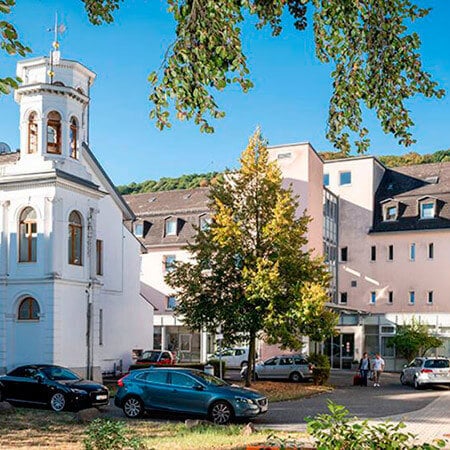
Department of Radiation Therapy and Radiation Oncology
The Department of Radiation Therapy and Radiation Oncology offers all types of modern radiation therapy for the highly effective treatment of benign and malignant tumors. The department is equipped with three linear accelerators and brachytherapy systems, which provide patients with the safest, most effective, and most sparing irradiation of tissues affected by oncopathology. The department also provides radiotherapy planning and radiosurgery. An ultramodern technical base, exceptional professionalism, and experience of the department's physicians are the cornerstones of successful clinical practice.
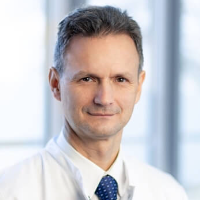


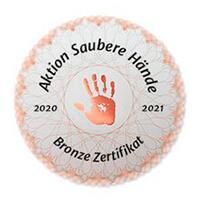

Department of Radiation Therapy
According to the Focus magazine, the University Hospital of Ludwig Maximilian University of Munich is regularly ranked among the best medical institutions in Germany! The hospital is the largest multidisciplinary medical facility, as well as a leading research and training center in Germany and Europe. The hospital is proud of its bicentenary history and tirelessly confirms its primacy at the national and international levels. The outstanding quality of medical care is complemented by highly productive research activities, thanks to which many effective diagnostic and therapeutic methods, saving people’s lives, have been presented in medical practice.
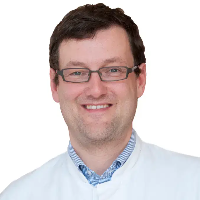






Department of Radiation Therapy
According to the Focus magazine, the Department of Radiation Therapy ranks among the top German medical facilities in the area of its specialization! The department offers all types of modern radiation therapy for cancer treatment at the highest level of university medicine. The priorities of the department's work include the treatment of tumors of the gastrointestinal tract, urogenital system in men, gynecological tumors in women, oncopathologies of the nervous system, as well as head and neck tumors. Each department's specialist strives to ensure all the patients with the most effective and at the same time customized treatment. Due attention is also paid to radiation protection.
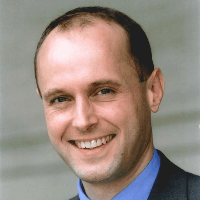




An ependymoma is a group of tumors originating from ependymal cells that line the ventricles of the brain and the central canal of the spinal cord. Ependymomas most commonly develop in the lower region of the spinal cord, including the conus medullaris and cauda equina. Occasionally, neoplasms can be detected in the cervical or thoracic spinal cord. They are classified into three grades (benign, intermediate, and malignant), more often affecting children, but they can develop at any age. The tumor treatment in Germany is carried out with surgery and radiation therapy. You can find out prices for treatment at German hospitals on the Booking Health website.
Content
- When can radiation therapy be used for ependymomas?
- What methods of radiation therapy for ependymomas are used in Germany?
- Proton therapy for ependymomas
- Where to undergo your ependymoma treatment?
When can radiation therapy be used for ependymomas?
Treatment of ependymomas begins with surgery whenever possible. This is the most effective treatment method. If surgeons are successful in completely removing the tumor, it rarely recurs. Surgery may be the only treatment required for a patient, but, in some cases, radiation therapy may also be indicated.
Indications for radiation therapy are the following:
- postoperative irradiation of patients with grade 3 neoplasms;
- ependymoma recurrence;
- residual tumor (incomplete ependymoma removal during surgery);
- postoperative irradiation of myxopapillary ependymomas in patients under 20 years of age;
- contraindications to surgery (in this case, radiation therapy can be used as the main method of local tumor control).
The prognosis for the risk of recurrence and patient survival depends on the histological type of the tumor, the patient's age, and the extent of resection surgery. Depending on these conditions, the tactics of postoperative treatment may also change. As a rule, the removal of malignant tumors is always followed by irradiation. As for benign tumors, radiation therapy after their removal may be indicated only if there is a residual tumor. With regard to intermediate types of ependymoma (grade 2), treatment tactics have not been finally determined due to the rarity of the tumor. Consequently, the decision is made individually. Today, medicine has no data on whether postoperative radiation therapy improves the survival of patients after total resection of grade 2 ependymomas.
What methods of radiation therapy for ependymomas are used in Germany?
If you had surgery at the German Neurosurgery Center, you may be provided with adjuvant radiation therapy. Doctors in Germany use the latest irradiation methods on state-of-the-art linear accelerators. They are very accurate and sparing for healthy tissues, rarely leading to any post-radiation complications.
3D conformal radiation therapy, IMRT (intensity-modulated radiation therapy), IGRT (image-guided radiation therapy), and VMAT (volumetric modulated arc therapy) are available in Germany. IMRT allows for safe irradiation of tumors located near functionally important areas, reducing the dose of radiation to sensitive healthy tissues. VMAT allows for irradiating not only more accurately but also faster.
In standard cases, irradiation lasts about a month and a half. The total dose of radiation is divided into 30-33 fractions. Sometimes irradiation can be completed faster. If the tumor is benign, has clear boundaries, and is located away from the functionally important areas of the spinal cord and brain, doctors may use SBRT (stereotactic body radiation therapy). With its help, doctors can simultaneously deliver large doses of radiation to the target. As a result, the treatment takes less time because the tumor or its remnants can be destroyed in just a few sessions.
Proton therapy for ependymomas
Proton therapy is available at six hospitals in Germany. Three of them use this treatment option not only for intracranial tumors but also for other tumors, including spinal cord neoplasms.
Proton therapy has a unique property, namely that it spares healthy tissues since protons emit almost no radiation on their way to the tumor. The tissues behind the target are not irradiated at all. With proton therapy, doctors manage to destroy ependymomas while preserving normal spinal cord tissue.
Proton therapy is most often used in children, as it is very important for them to minimize exposure to their growing spinal cord. It is safer than conventional photon irradiation and possibly more efficient, but the cost of proton irradiation is higher. Recent clinical trials show that doctors achieve better results with proton therapy than those described for photon therapy.
In 2020, a clinical trial was published in which 12 patients (mean age 13.5 years) received proton irradiation for their spinal myxopapillary ependymomas. Postoperative irradiation was given to 5 of them, and 7 of them received proton therapy for recurrence. During the 5 years of follow-up, only one patient had a tumor recurrence, and it was in an area that was not exposed to radiation.
In 2021, another clinical trial was published, in which 14 children with grade 2-3 non-metastatic non-myxopapillary spinal ependymomas took part. In all cases, it was postoperative irradiation. In 11 people, the tumor was completely removed, and in 3 people, it was almost completely removed. During a follow-up period of 1.5 to 14.8 years, not a single recurrence was noted. Only one case of the development of complications from radiation therapy caused by irradiation of the spinal cord was registered.
Most trials show that proton therapy is a highly effective and safe irradiation method. According to its results, the best survival rates were achieved. Most patients recover after surgery and proton therapy, including those with recurrent ependymomas and malignant tumors that did not spread metastases at the time of the operation.
Where to undergo your ependymoma treatment?
You can undergo your treatment for this disease at one of the Neurosurgery Centers in Germany. It starts with surgery, but some patients will also need radiation therapy. Radiation therapy at German hospitals has the following benefits:
- state-of-the-art equipment;
- a lower risk of post-radiation complications;
- a higher probability of complete tumor destruction;
- a lower risk of disease recurrence after the completion of treatment;
- successful treatment of even large, malignant, and recurrent ependymomas;
- several hospitals in Germany use proton therapy, which is the best method for treating children and young patients;
- prices in Germany are lower than in other developed countries such as the United States, Japan, and the United Kingdom.
You can find out the cost of treatment in Germany on the Booking Health website, compare prices, and choose a medical care program. The cost of treatment for you will be lower than if you contact the Neurosurgery Center directly. Prices will be reduced due to the absence of taxes for foreign patients.
When you choose a medical care program through the Booking Health service, you will receive insurance against expenses that are not provided for by the program. This means that the initial price will not increase even if additional procedures are required.
Our company's specialists will take care of organizing your treatment in Germany. We will select a hospital for you in Germany, book a hotel and airline tickets, meet you at the airport, and take you to the Neurosurgery Center by car. We will also provide you with interpreting services and support you during the entire period of your stay abroad.
Authors:
The article was edited by medical experts, board certified doctors Dr. Nadezhda Ivanisova and Dr. Sergey Pashchenko. For the treatment of the conditions referred to in the article, you must consult a doctor; the information in the article is not intended for self-medication!
Sources:

